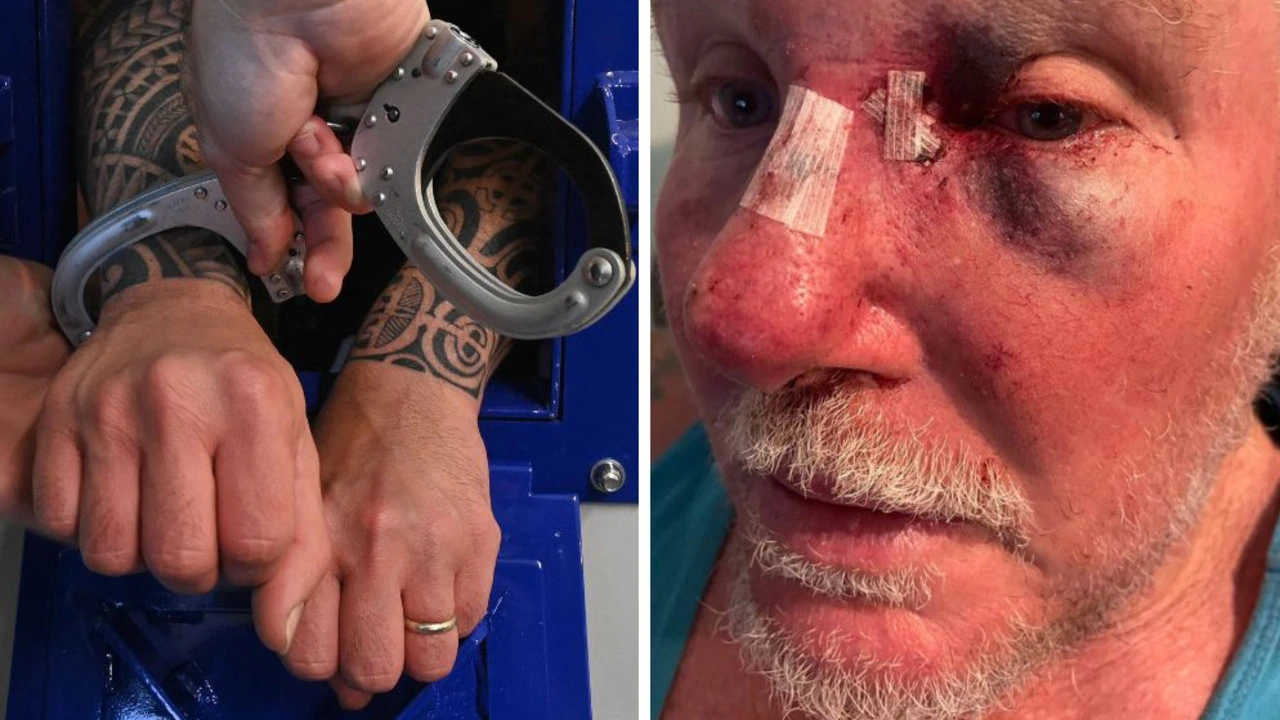Copyright news

Thousands of prison officers in New South Wales have been pressured to stop widespread industrial action after at least 5,000 signalled they were fed up with the system. The protest began on Thursday when staff at Cessnock Correctional Centre staged a walkout in response to a prisoner assaulting officers, only for the offender to be released back into the community by a court. The action quickly spread, creating a state of chaos due to severe understaffing in prisons and courts throughout NSW. Public Service Association (PSA) General Secretary Stewart Little confirmed that staff at all 36 state-run prisons took part, including Cessnock, where employees had voted to strike for 48 hours. At an urgent hearing on Thursday afternoon, the PSA was instructed to stop organising or engaging in industrial action from 6am Friday. Frustrations from NSW’s correctional officers hit fever pitch when inmate Cameron Welsh attacked a staff member at Cessnock. Welsh was sentenced to a three-year Community Corrections Order (CCO), which does not involve jail time. That “slap on the wrist” was seen as far too lenient. Assistant Commissioner at the Department of Justice Craig Smith said violence against officers was unacceptable and described the punishment of Mr Welsh as “manifestly inadequate”. News.com.au spoke with a former prison officer working in NSW, who detailed the uncomfortable realities of having your place of work be filled with criminals. Former prison officer speaks out The former officer, speaking on the condition of anonymity, claims the issues go far deeper than the most recent controversy. According to her, violence against staff is not uncommon. They describe entering a horribly tense atmosphere at work each day, not knowing whether they’ll witness, or be subject to, horrific acts of violence before they clock off. “The worst inmate-on-staff violence was a hostage situation,” the former employee says. “Inmates pretended to fight in the pod and responding officers who were working in the pod office opened an internal door that lead directly from the inmate area to the staff office. Two inmates held two staff members hostage for six hours I think — and the response was terrible. “One officer was bashed ... he won’t return to work. The inmates responsible were charged but they barely had time added to their initial sentences, it was to be counted as time served.” She described the day-to-day risks and overwhelming responsibility placed on the shoulders of young workers. “You were given heaps of responsibility right off the bat. I used to run the remand pod in maximum security which housed unsentenced inmates. In this particular pod it was just me and one other officer, so two of us with around 50 inmates. “You’d have to go into the wing multiple times a day to unlock doors, lock inmates in or to just adequately respond to what they needed. You definitely feel outnumbered, but the more seasoned you are the more complacent you become. You just feel comfortable enough because you ‘know’ them.” As a female officer, the risks were naturally more intense, she said. “Being a female officer was also hard just purely because of the threat you feel from that, but again you’re still left with the responsibility of being with only one other officer when entering the pods. Normally for a female you’re always doubled up with a male officer,” she continued. She said there was often staff rotations and shortages at her prison, an issue she believes to be systemic. “You would often get new rotations of where you’d be placed in the jail too, so sometimes you’d be in an entirely different sector or pod. But it’s still the same scenario,” she continued. “You’re always ‘two out’ with another officer. You’re not meant to go into the pods alone ... but seasoned officers always do because of complacency. “NSW jails are notoriously understaffed too, so safety is never prioritised for officers. “Sometimes the managers will have ‘lock ins’ when they don’t have enough staff but they’ll still push to open some pods to appease inmates and bring down tension. “This is a huge safety risk due to not have an adequate response team to show up to any sort of incident. I felt safe when the roster was full and the response teams were full – but this was rare.” The former correctional officer says she only got 10 weeks training before being thrown in the deep end. “They also only provide 10 weeks of training and only 2 weeks of that is self defence training (which is) absolutely not enough for going to work in a jail. Then they hand you a set of keys and say ‘good luck’ and you’re left to work with max security offenders” However, she believed the compensation for officers was “decent”. “I do think officers get a decent kind of compensation though. Workers compensation is easy to be approved for and managers rarely attempt to get in the way of that. You get paid 90 per cent of your wage and can extend it where needed. “You also get a pay out if you get assaulted by an inmate, it depends on the severity of the assault. “Most inmates I’ve seen assault staff don’t get extra charges though. They normally just get moved to another jail to finish their current sentence or remain unsentenced while they wait for court.” Prisons running on ‘skeleton staff’ As a result of the industrial action, prisons were left running with “skeleton staff” with fears some officers would be forced to stay on duty for up to 48 hours if the strike went further. “It’s just … unsafe at this point,” Mr Smith said, adding that the situation could become “catastrophic” with officers working unreasonable overtime. He also cautioned that prisoners due in court on Friday would not have been transported and that inmates requiring hospital supervision or self-harm monitoring could be put at risk. Catherine Carvolth, representing Corrective Services NSW (CSNSW), told the hearing that while CSNSW understood the union’s concerns, some issues were beyond its authority. “The industrial action, as we’ve heard … has a significant impact on operations at corrective services. There’s also safety considerations to inmates which are in the care of corrective services as well,” she said. The public services union has predictably pushed back hard. PSA representative David Bartle argued that while talks had taken place, progress had been limited. “That only really amounts to a commitment to further talk, and we are at a point where talk simply isn’t enough in our view to address this matter in the urgency which it requires,” he said. Ultimately, Commissioner Janet McDonald ruled against the strike, instructing the PSA to immediately stop organising and participating in industrial action from 6am Friday. The union must publish the ruling on its website and social media, and it is prohibited from advising members to continue striking. As part of the resolution, a letter will be sent to the Director of Public Prosecutions seeking a review of Welsh’s sentence, while the parole board is also expected to be consulted. Corrections Minister Anoulak Chanthivong meanwhile welcomed the outcome and said discussions with the PSA would continue as part of the government’s reform program. “The Government welcomes this decision for staff to resume work at correctional centres around the state,” he said in a statement provided to news.com.au. “Community safety remains this Government’s top priority, and we reiterate that correctional centres remain secure during this stop work action. “I will continue to talk directly with correctional officers and the Public Service Association to achieve our shared goal of keeping our correctional centres safe for staff. “I understand why correctional officers are angry. Working in a prison is a tough job at the best of times and correctional officers put themselves at risk to keep us all safe. Correctional officers deserve our gratitude and they deserve to be safe on the job. “The attack on these officers was disgusting. It was cowardly and it was shameful. “I was confronted by the injuries endured by these four officers, and I spoke to them in February to reiterate our gratitude for their service. “Corrective Services NSW will write to the Office of the Director of Public Prosecutions seeking an appeal of the sentence for the inmate in question.”



